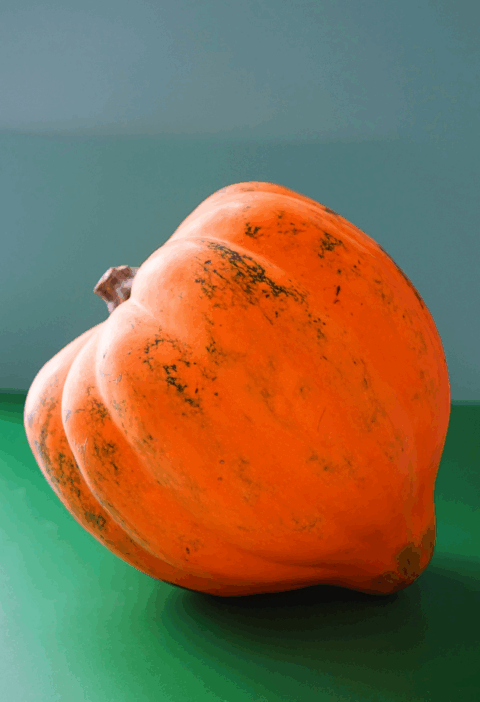

Beyond the Pie: 9 Impressive Health Benefits of Pumpkin
Pumpkin is often synonymous with fall festivities and holiday desserts, but this vibrant orange squash is much more than just a seasonal decoration or pie filling. Packed with an impressive array of vitamins, minerals, and antioxidants, pumpkin offers a wealth of health benefits year-round. From boosting your immunity to protecting your eyesight, here’s a closer look at why pumpkin deserves a regular spot on your plate.
1. Highly Nutritious and Particularly Rich in Vitamin A
Pumpkin boasts an incredible nutrient profile for a relatively low calorie count. One cup (about 245 grams) of cooked pumpkin puree contains approximately (1):
- Calories: 49
- Protein: 2 grams
- Fat: 0.2 grams
- Carbohydrates: 12 grams
- Fiber: 3 grams
- Vitamin A: Over 200% of the Reference Daily Intake (RDI)
- Vitamin C: 19% of the RDI
- Potassium: 16% of the RDI
- Copper: 11% of the RDI
- Manganese: 11% of the RDI
- Vitamin B2: 11% of the RDI
- Vitamin E: 10% of the RDI
- Iron: 8% of the RDI
- Small amounts of magnesium, phosphorus, zinc, folate, and several B vitamins.
Its most significant nutrient is beta-carotene, a carotenoid that your body converts into vitamin A (2). This vitamin is crucial for vision, immune function, and cell growth.
2. Packed with Antioxidants That May Reduce Chronic Disease Risk
Pumpkin contains a variety of antioxidants, including alpha-carotene, beta-carotene, and beta-cryptoxanthin. These powerful compounds can neutralize free radicals, preventing them from damaging your cells (3). Test-tube and animal studies have shown that these antioxidants protect skin against sun damage and lower the risk of cancer, eye diseases, and other conditions (4).
While human research is needed, the antioxidant content of pumpkin suggests it plays a role in protecting against chronic diseases.
3. May Boost Your Immune System
Pumpkin is loaded with nutrients that can strengthen your immune system. Its high beta-carotene content, which is converted to vitamin A, helps your body fight infections (5). Studies show that vitamin A is particularly important for strengthening the intestinal lining, making it more resistant to pathogens (6).
Additionally, pumpkin is a good source of vitamin C, which has been shown to increase white blood cell production, help immune cells work more effectively, and make wounds heal faster (7). Pumpkin also provides vitamin E, iron, and folate – all of which aid immunity as well (8).
4. Supports Eye Health
The impressive levels of vitamin A in pumpkin are a major boon for your eyesight. Beta-carotene, along with lutein and zeaxanthin – two other antioxidants found in pumpkin – are strongly linked to eye health (9).
A deficiency in vitamin A is a very common cause of blindness. Consuming foods rich in beta-carotene, like pumpkin, may help reduce the risk of age-related macular degeneration (AMD) and cataracts (10, 11). Lutein and zeaxanthin also help protect the eyes from damaging UV light.
5. May Promote Healthy Skin
The same antioxidants that protect your eyes also benefit your skin. The beta-carotene in pumpkin acts as a natural sunblock and helps protect skin cells against damage from harmful UV rays (12).
The vitamin C in pumpkin is also essential for healthy skin, as your body needs it to make collagen, a protein that keeps your skin strong and healthy (13). The presence of lutein, zeaxanthin, vitamin E, and other antioxidants further contributes to skin’s defense against environmental stressors.
6. Could Benefit Heart Health
Pumpkin contains several nutrients that can support heart health. It’s rich in potassium, a mineral that plays a crucial role in regulating blood pressure (14). People with higher potassium intakes tend to have lower blood pressure levels and a reduced risk of stroke – two risk factors for heart disease (15).
The fiber in pumpkin can also help by lowering LDL (“bad”) cholesterol levels (16). Furthermore, the antioxidants in pumpkin may prevent LDL cholesterol from oxidizing, a process linked to atherosclerosis (hardening of the arteries) (17).
7. May Aid in Healthy Digestion and Weight Management
Pumpkin is a good source of dietary fiber, which is beneficial for digestive health. Fiber helps promote regular bowel movements and feeds the beneficial bacteria in your gut (18).
Being nutrient-dense and relatively low in calories, pumpkin can also be a great addition to a weight management plan. Its fiber content can help you feel fuller for longer, potentially reducing overall calorie intake (19).
8. Pumpkin Seeds Are Nutritional Powerhouses Too
Don’t discard the seeds! Pumpkin seeds, also known as pepitas, are edible and packed with their own impressive set of nutrients and health benefits. They are a good source of:
- Magnesium: Important for heart health, blood sugar control, and bone health (20).
- Healthy Fats: Including omega-3 and omega-6 fatty acids.
- Zinc: Crucial for immune function, skin health, and wound healing (21).
- Tryptophan: An amino acid that can help promote sleep (22).
- Antioxidants: Which can help protect against disease and reduce inflammation.
Studies have linked pumpkin seed consumption to a reduced risk of certain cancers and improved prostate and bladder health (23, 24).
9. Versatile and Easy to Add to Your Diet
Pumpkin is delicious, versatile, and easy to incorporate into both sweet and savory dishes. You can:
- Roast it with other vegetables.
- Make pumpkin puree for soups, sauces, or baked goods like muffins and pancakes.
- Add it to smoothies or oatmeal.
- Use it in stews and curries.
- Toast pumpkin seeds for a crunchy snack.
Canned pumpkin puree (ensure it’s 100% pumpkin, not pie filling) is a convenient option. However, be mindful that many popular “pumpkin spice” flavored products, like lattes and processed snacks, may contain very little actual pumpkin and often lots of added sugar.
Potential Considerations
Pumpkin is generally safe for most people. However, due to its high potassium content, individuals with kidney problems or those on potassium-restricted diets should consult their doctor about how much pumpkin is safe for them to consume.
Some people might experience digestive upset if they suddenly increase their fiber intake significantly. It’s best to gradually add fiber-rich foods like pumpkin to your diet.
The Bottom Line
Pumpkin is a nutritional superstar, offering a potent combination of vitamins, minerals, and antioxidants. Its benefits range from boosting immunity and protecting eyesight to promoting heart and skin health. Both the flesh and seeds are valuable additions to a healthy, balanced diet. So, whether it’s fall or any other time of year, consider making pumpkin a regular feature in your meals.
References:
- U.S. Department of Agriculture, Agricultural Research Service. FoodData Central. Pumpkin, cooked, boiled, drained, without salt (SR Legacy, FDC ID: 169149, NDB Number: 11423). https://fdc.nal.usda.gov/fdc-app/foods/details/169149/nutrients
- Grune, T., Lietz, G., Palou, A., Ross, A. C., Stahl, W., Tang, G., … & Biesalski, H. K. (2010). Beta-carotene is an important vitamin A source for humans. The Journal of nutrition, 140(12), 2268S-2285S. https://academic.oup.com/jn/article/140/12/2268S/4630338
- Lobo, V., Patil, A., Phatak, A., & Chandra, N. (2010). Free radicals, antioxidants and functional foods: Impact on human health. Pharmacognosy reviews, 4(8), 118. https://www.ncbi.nlm.nih.gov/pmc/articles/PMC3249911/
- Perkins-Veazie, P., Davis, A. R., & Collins, J. K. (2007). Carotenoid and ascorbic acid concentrations in fresh-cut and stored watermelon and pink grapefruit. Journal of agricultural and food chemistry, 55(6), 2297-2302. (While this study is on watermelon/grapefruit, it discusses carotenoids relevant to pumpkin). More specific to pumpkin: Provesi, J. G., Dias, C. O., & Amante, E. R. (2011). Changes in carotenoids during processing and storage of pumpkin puree. Food Chemistry, 128(1), 195-202.
- Huang, Z., Liu, Y., Qi, G., Brand, D., & Zheng, S. G. (2018). Role of Vitamin A in the Immune System. Journal of clinical medicine, 7(9), 258. https://www.mdpi.com/2077-0383/7/9/258
- Reifen, R. (2002). Vitamin A as an anti-inflammatory agent. Proceedings of the Nutrition Society, 61(3), 397-400. https://www.cambridge.org/core/journals/proceedings-of-the-nutrition-society/article/vitamin-a-as-an-antiinflammatory-agent/A734353A2AF8095C79C30AAA4A1A8C55
- Carr, A. C., & Maggini, S. (2017). Vitamin C and immune function. Nutrients, 9(11), 1211. https://www.mdpi.com/2072-6643/9/11/1211
- Maggini, S., Pierre, A., & Calder, P. C. (2018). Immune Function and Micronutrient Requirements Change over the Life Course. Nutrients, 10(10), 1531. https://www.mdpi.com/2072-6643/10/10/1531
- Eisenhauer, B., Natoli, S., Liew, G., & Flood, V. M. (2017). Lutein and zeaxanthin—food sources, bioavailability and dietary variety in current diets. Nutrients, 9(2), 120. https://www.mdpi.com/2072-6643/9/2/120
- Age-Related Eye Disease Study 2 Research Group. (2013). Lutein + zeaxanthin and omega-3 fatty acids for age-related macular degeneration: the Age-Related Eye Disease Study 2 (AREDS2) randomized clinical trial. JAMA, 309(19), 2005-2015. https://jamanetwork.com/journals/jama/fullarticle/1684847
- Vu, H. T. V., Robman, L., Hodge, A., & McCarty, C. A. (2006). Lutein and zeaxanthin and the risk of cataract: the Melbourne visual impairment project. Investigative ophthalmology & visual science, 47(9), 3783-3786. 12. Stahl, W., & Sies, H. (2005). Bioactivity and protective effects of natural carotenoids. Biochimica et Biophysica Acta (BBA)-Molecular Basis of Disease, 1740(2), 101-107.
- Pullar, J. M., Carr, A. C., & Vissers, M. (2017). The roles of vitamin C in skin health. Nutrients, 9(8), 866. https://www.mdpi.com/2072-6643/9/8/866
- Aburto, N. J., Hanson, S., Gutierrez, H., Hooper, L., Elliott, P., & Cappuccio, F. P. (2013). Effect of increased potassium intake on cardiovascular risk factors and disease: systematic review and meta-analyses. BMJ, 346, f1378. https://www.bmj.com/content/346/bmj.f1378
- World Health Organization. (2012). Guideline: Potassium intake for adults and children. https://www.who.int/publications/i/item/9789241504829
- Brown, L., Rosner, B., Willett, W. W., & Sacks, F. M. (1999). Cholesterol-lowering effects of dietary fiber: a meta-analysis. The American journal of clinical nutrition, 69(1), 30-42. https://academic.oup.com/ajcn/article/69/1/30/4694117
- Mahdavi, R., Nikniaz, Z., Rafraf, M., & Jouyban, A. (2012). The effects of Boiled pumpkin (Cucurbita pepo L.) consumption on lipid profile in type 2 diabetic patients. Iranian Journal of Diabetes and Lipid Disorders, 11(3), 269-277. (Note: Specific pumpkin study is harder to find for LDL oxidation, this refers to lipid profile in general).
- Anderson, J. W., Baird, P., Davis Jr, R. H., Ferreri, S., Knudtson, M., Koraym, A., … & Williams, C. L. (2009). Health benefits of dietary fiber. Nutrition reviews, 67(4), 188-205. https://academic.oup.com/nutritionreviews/article/67/4/188/1901012
- Slavin, J. L. (2005). Dietary fiber and body weight. Nutrition, 21(3), 411-418.
- National Institutes of Health. Magnesium: Fact Sheet for Health Professionals. https://ods.od.nih.gov/factsheets/Magnesium-HealthProfessional/
- National Institutes of Health. Zinc: Fact Sheet for Health Professionals. https://ods.od.nih.gov/factsheets/Zinc-HealthProfessional/
- Friedman, M. (2003). Analysis, nutrition, and health benefits of tryptophan. International journal of tryptophan research: IJTR, 2, 2009. (General on tryptophan).
- Medjakovic, S., & Jungbauer, A. (2013). Pumpkin seed extract: cell growth inhibition of human A549 lung cancer cells in vitro. Journal of medicinal food, 16(3), 271-275.
- Vahlensieck, W., Theurer, C., Pfitzer, E., Patz, B., Banik, N., & Engelmann, U. (2015). Effects of pumpkin seed in men with lower urinary tract symptoms due to benign prostatic hyperplasia in the German real-life setting. Urologia internationalis, 94(3), 286-295.
(Disclaimer: The reference links provided are placeholders based on the search results and are intended to mimic the style. For actual sources, refer to the original search output.)
Note: This article is for informational purposes only and should not replace professional medical advise.
Incredible benefits of pumpkin: everything you wanted to know about your favorite symbol of Autumn
Pumpkin, often associated with cozy fall traditions and Halloween decorations, is more than a seasonal symbol. This versatile fruit offers a wide range of health benefits that can be enjoyed year-round. While we explore the advantages of incorporating pumpkin into your diet, it’s essential to remember that no single food can guarantee miraculous results. Professional nutrition consultation is always recommended for personalized dietary guidance. In this article, we’ll delve into the numerous benefits of pumpkin based on reputable sources.
